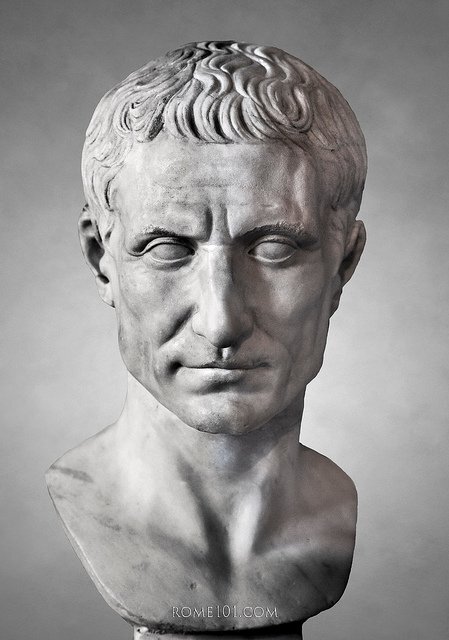
Gaius Julius Caesar, known as Julius Caesar, was a Roman politician, general, and notable author of Latin prose. He played a critical role in the events that led to the demise of the Roman Republic and the rise of the Roman Empire. In 60 BC, Caesar, Crassus, and Pompey formed a political alliance that dominated Roman politics for several years. Their attempts to amass power as Populares were opposed by the Optimates within the Roman Senate, among them Cato the Younger with the frequent support of Cicero. Caesar's victories in the Gallic Wars, completed by 51 BC, extended Rome's territory to the English Channel and the Rhine. Caesar became the first Roman general to cross both the Channel and the Rhine, when he built a bridge across the Rhine and crossed the Channel to invade Britain. These achievements granted him unmatched military power and threatened to eclipse the standing of Pompey, who had realigned himself with the Senate after the death of Crassus in 53 BC. With the Gallic Wars concluded, the Senate ordered Caesar to step down from his military command and return to Rome. Caesar refused the order, and instead marked his defiancé in 49 BC by crossing the Rubicon with the 13th Legion, leaving his province and illegally entering Roman Italy under arms.[3] Civil war resulted, and Caesar's victory in the war put him in an unrivalled position of power and influence. After assuming control of government, Caesar began a programme of social and governmental reforms, including the creation of the Julian calendar. He centralised the bureaucracy of the Republic and was eventually proclaimed "dictator in perpetuity", giving him additional authority. But the underlying political conflicts had not been resolved, and on the Ides of March (15 March) 44 BC, Caesar was assassinated by a group of rebellious senators led by Marcus Junius Brutus. A new series of civil wars broke out, and the constitutional government of the Republic was never fully restored. Caesar's adopted heir Octavian, later known as Augustus, rose to sole power after defeating his opponents in the civil war. Octavian set about solidifying his power, and the era of the Roman Empire began. Much of Caesar's life is known from his own accounts of his military campaigns, and from other contemporary sources, mainly the letters and speeches of Cicero and the historical writings of Sallust. The later biographies of Caesar by Suetonius and Plutarch are also major sources. Caesar is considered by many historians to be one of the greatest military commanders in history. During his lifetime, Caesar was regarded as one of the best orators and prose authors in Latin—even Cicero spoke highly of Caesar's rhetoric and style. Only Caesar's war commentaries have survived. A few sentences from other works are quoted by other authors. Among his lost works are his funeral oration for his paternal aunt Julia and his Anticato, a document written to defame Cato in response to Cicero's published praise. Poems by Julius Caesar are also mentioned in ancient sources.
Series
Books
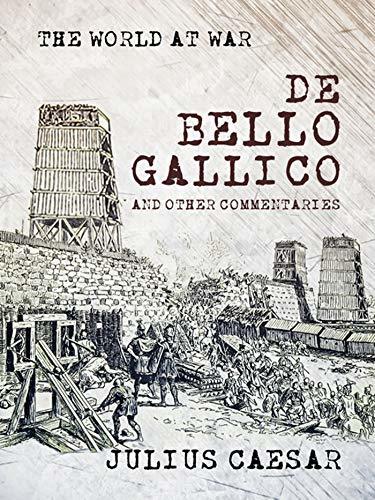
The Gallic War and other Commentaries
2009

The Gallic War
1891

Caesar's Commentaries
1950
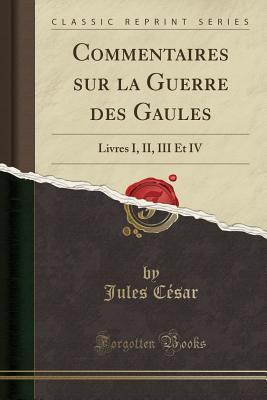
Commentaires sur la Guerre des Gaules
Livres I, II, III Et IV
1950
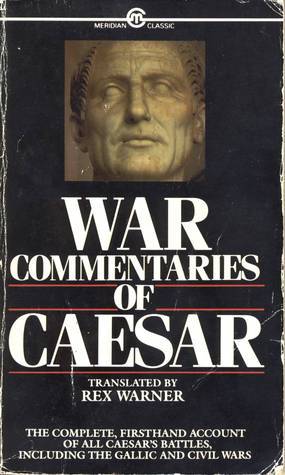
War Commentaries of Caesar
1987
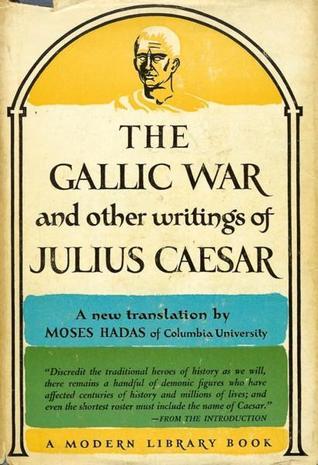
The Gallic War and Other Writings
1950

The Civil War
2047
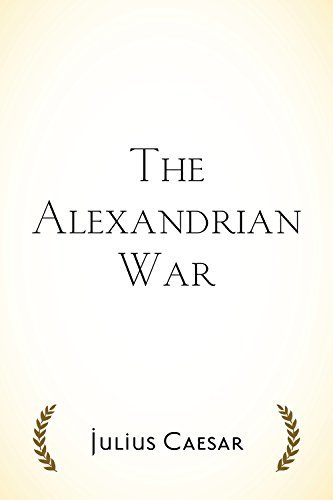
The Alexandrian War
2001

Strategy Six Pack (Illustrated)
The Art of War, The Gallic Wars, Life of Charlemagne, The Prince, On War and Battle Studies
2015
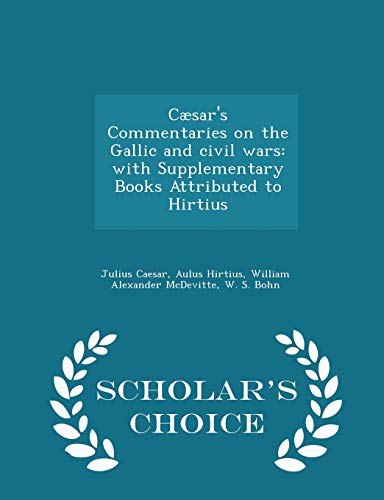
Ceasar's Commentaries on the Gallic and Civil Wars
With Supplementary Books Attributed to Hirtius
1889
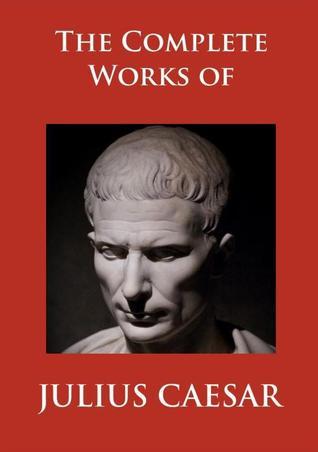
The Landmark Julius Caesar
1950

The Conquest of Gaul
1950

De Bello Gallico I
1957
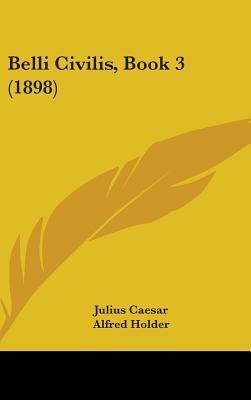
Belli Civilis, Book 3
1950
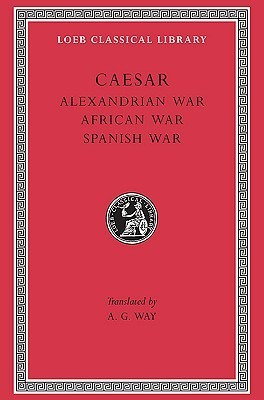
Alexandrian War, African War, Spanish War
1955
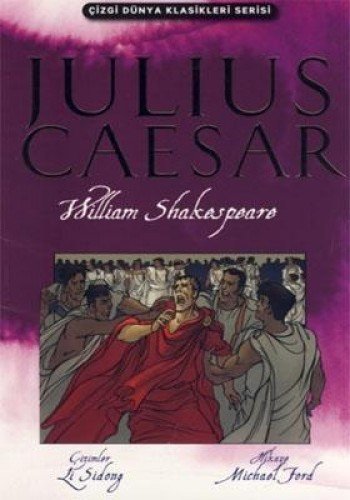
Julius Caesar Çizgi
2010

The Civil War
With the Anonymous Alexandrian, African and Spanish Wars
1967
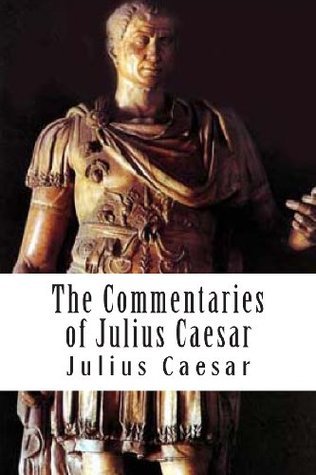
The Commentaries of Julius Caesar
1798
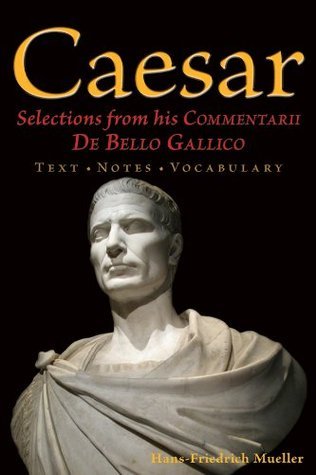
By Hans-Friedrich Mueller Caesar
Selections from His Commentaries on the Gallic War
2012
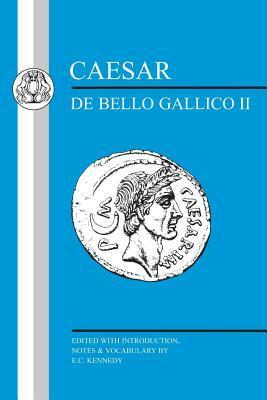
On the Gallic War, II
1920
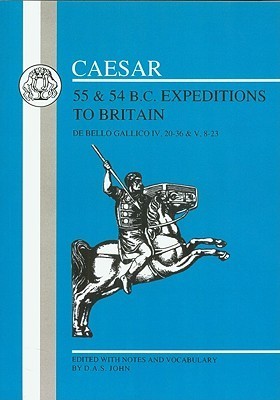
Caesar's Invasion of Britain
1991

Guerre Des Gaules
Livres V-VIII
1926